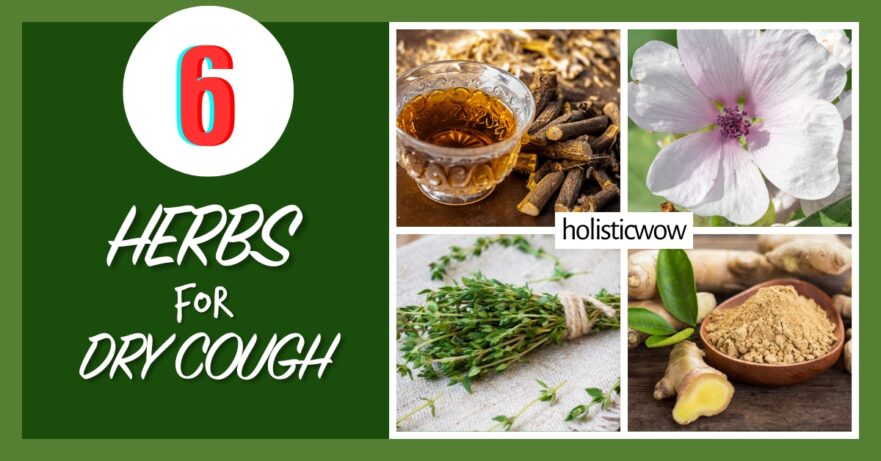In this article about herbs for dry cough:
🌿 Best Herbs for Dry Cough | 📜 Herbal Preparations and Recipes for Dry Cough | ☯️ Integrating Herbs into Daily Life for Dry Cough Relief | 🌱 Navigating Herbs Safely
Dry cough is a common respiratory issue that can disrupt sleep and daily activities. It’s often characterized by a tickling sensation in the throat, leading to persistent coughing without producing mucus. This irritating condition can result from various factors, including allergies, infections, or environmental irritants.
Certain herbs offer natural relief for dry cough symptoms. Licorice, marshmallow root, and ginger are known for their soothing properties and ability to reduce throat irritation. These herbs may help decrease cough frequency and provide comfort to irritated airways.
This article explores six effective herbs for managing dry cough. We’ll discuss their potential benefits, how to use them, and important safety considerations. By understanding these natural remedies, you can make informed decisions about incorporating them into your cough management routine.
Key Takeaways
- 🌿 Demulcent herbs: Licorice root and marshmallow root coat and soothe irritated throat tissues, potentially reducing cough frequency.
- 🫚 Anti-inflammatory options: Ginger and thyme may help decrease inflammation in the respiratory tract, easing cough symptoms.
- 🥬 Expectorant properties: Plantain leaf may help loosen and expel mucus, making coughs more productive.
- 🫖 Herbal preparation methods: Teas, syrups, and steam inhalations offer various ways to use herbs for dry cough relief.
🌿 Best Herbs for Dry Cough
Dry cough is a common and frustrating respiratory symptom that disrupts daily life and sleep. This type of cough produces little to no mucus and is typically characterized by a dry or tickling sensation in the throat. Dry coughs can be caused by various factors, including viral infections, allergies, asthma, gastroesophageal reflux disease (GERD), or environmental irritants like smoke or pollution.
Symptoms of dry cough include a persistent urge to cough, throat irritation, and sometimes chest discomfort. In some cases, a dry cough may be accompanied by a sore throat, hoarseness, or a feeling of tightness in the chest. While usually not serious, persistent dry cough can be bothersome and impact quality of life.
Nature offers several herbs traditionally used to address dry cough symptoms. Licorice (Glycyrrhiza glabra), marshmallow (Althaea officinalis), plantain (Plantago spp.), ginger (Zingiber officinale), thyme (Thymus vulgaris), and slippery elm (Ulmus rubra) are among the herbal remedies often employed to help soothe irritated airways and provide relief from dry cough. However, it is important to consult with a healthcare professional before using these herbs, especially if the dry cough is persistent or associated with other concerning symptoms.
Licorice (Glycyrrhiza glabra)
Licorice (Glycyrrhiza glabra) has been used in traditional medicine systems worldwide for thousands of years. This sweet root is recognized for its soothing properties, particularly in addressing respiratory issues like dry cough. Licorice contains glycyrrhizin, a compound that has shown anti-inflammatory and antiviral effects in various studies. It also acts as a demulcent, forming a protective coating over irritated mucous membranes in the throat and lungs, which may help reduce the cough reflex and soothe irritation. Human studies have shown that licorice can effectively reduce cough severity and frequency, particularly in cases of chronic cough of unknown origin [1]. However, it’s important to note that long-term use or high doses of licorice can lead to side effects like increased blood pressure, hypokalemia (low potassium levels) [2], and fluid retention.
Marshmallow (Althaea officinalis)
Marshmallow (Althaea officinalis) root has a long history of use for respiratory complaints. This herb is rich in mucilage, a gel-like substance that coats and soothes irritated tissues. Marshmallow root acts as a demulcent and emollient, relieving dry, irritated throats, and may help reduce cough frequency. Its soothing properties can help alleviate inflammation in the respiratory tract. Some limited research and consumer reports suggest that marshmallow root may help [3] reduce the intensity and frequency of dry cough. It works by forming a protective layer over irritated mucous membranes, which helps to reduce the urge to cough. Marshmallow root is particularly useful for dry, unproductive coughs and can be taken as a tea, syrup, or lozenge. Its gentle nature makes it suitable for both adults and children.
Plantain (Plantago spp.)
Plantain (Plantago spp.) is a common weed with potential medicinal properties. This herb has been used traditionally for various respiratory issues, including dry cough. Plantain contains mucilage, tannins, and other compounds that give it expectorant, anti-inflammatory, and soothing properties. It may help to loosen and expel mucus while reducing inflammation in the respiratory tract. Plantain’s ability to soothe irritated tissues makes it potentially useful for dry, hacking coughs. While traditional use is well-documented, modern clinical evidence specifically evaluating its effectiveness in reducing cough is limited. The leaves can be used to make tea or syrup. Plantain is generally safe and well-tolerated, making it a good option for adults and children with dry cough.
Ginger (Zingiber officinale)
Ginger (Zingiber officinale) is known for its numerous health benefits, including its potential use in managing respiratory symptoms, such as dry cough. Ginger contains compounds like gingerols and shogaols, which have anti-inflammatory and possible antitussive (cough-suppressing) properties. These compounds may help relax the airway muscles, potentially reducing the cough reflex. Ginger is also thought to have mild expectorant properties, which might help loosen and expel mucus from the respiratory tract, although this is supported by limited direct evidence. Its warming nature can help soothe sore throats often associated with dry cough. Ginger can be consumed as a tea, added to food, or taken in supplement form. Its natural spiciness might provide temporary relief for throat irritation.
Thyme (Thymus vulgaris)
Thyme (Thymus vulgaris) has been used for centuries to treat respiratory conditions, including dry cough. This herb contains volatile oils, particularly thymol, and carvacrol, with strong antimicrobial and possible expectorant properties. Thyme may help relax the trachea and bronchi muscles, potentially reducing cough spasms. It also may act as an expectorant, helping to loosen and expel mucus from the airways. Some studies, primarily involving combination products with other herbs, have shown that thyme extract can significantly reduce the frequency and duration of coughing fits in patients with acute bronchitis [4]. Thyme’s antimicrobial properties can also help fight respiratory infections that may be causing the cough. It can be used as a tea, tincture, or essential oil for inhalation.
Slippery elm (Ulmus rubra)
Slippery elm (Ulmus rubra) is native to North America and has been used by Native Americans for centuries to treat various ailments, including respiratory issues. The inner bark of slippery elm contains mucilage, a substance that becomes a slick gel when mixed with water. This gel coats and soothes the throat and digestive tract, making it potentially effective for dry cough and sore throat. Slippery elm acts as a demulcent, forming a protective layer over irritated mucous membranes. This action may help to reduce the cough reflex and soothe irritation in the throat. While direct clinical research is limited, slippery elm has been traditionally used to help reduce cough frequency and severity in patients with upper respiratory tract infections. It’s often used in lozenges or as a tea to relieve cough and throat irritation. Slippery elm is generally safe and well-tolerated, but it might interfere with the absorption of certain medications.
📜 Herbal Preparations and Recipes for Dry Cough
To provide natural relief from dry cough, we have crafted specific herbal tea recipes that harness the healing properties of carefully selected herbs. Each blend is designed to soothe throat irritation and support respiratory health, offering an effective and gentle remedy for managing dry cough symptoms.
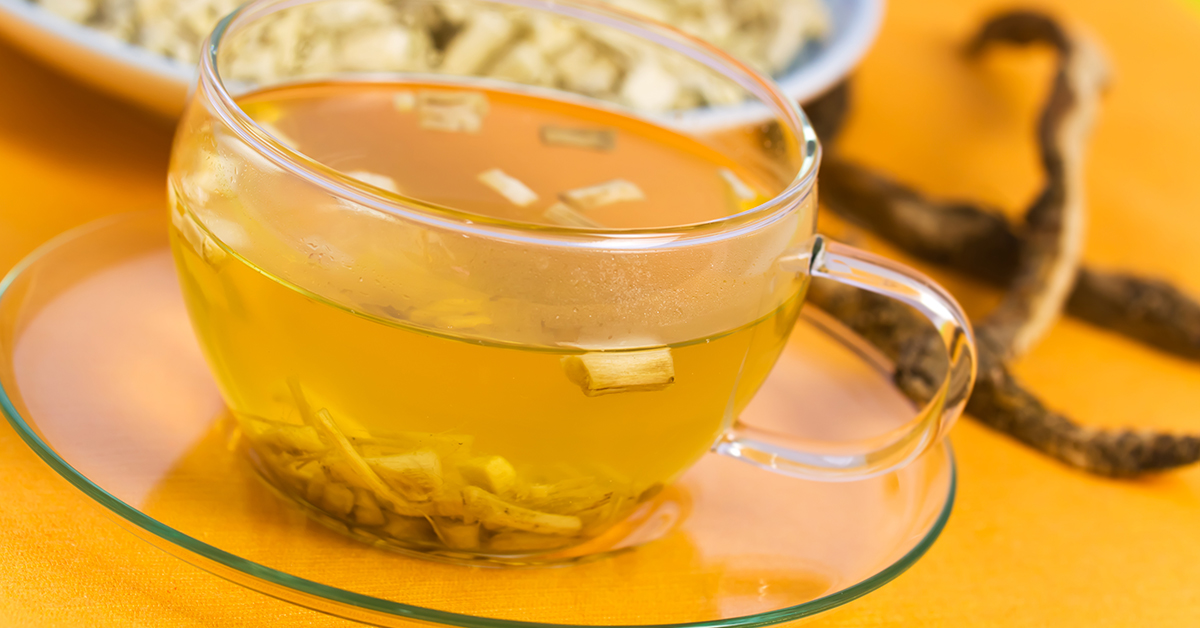
Soothing Throat Tea
Ingredients:
- 1 teaspoon dried marshmallow root
- 1 teaspoon dried plantain leaf
- 1 cup of boiling water
Preparation:
- Combine the herbs in a teapot.
- Add boiling water and steep for 10-15 minutes.
- Strain and drink up to 3 times daily to soothe throat irritation and potentially reduce cough frequency.
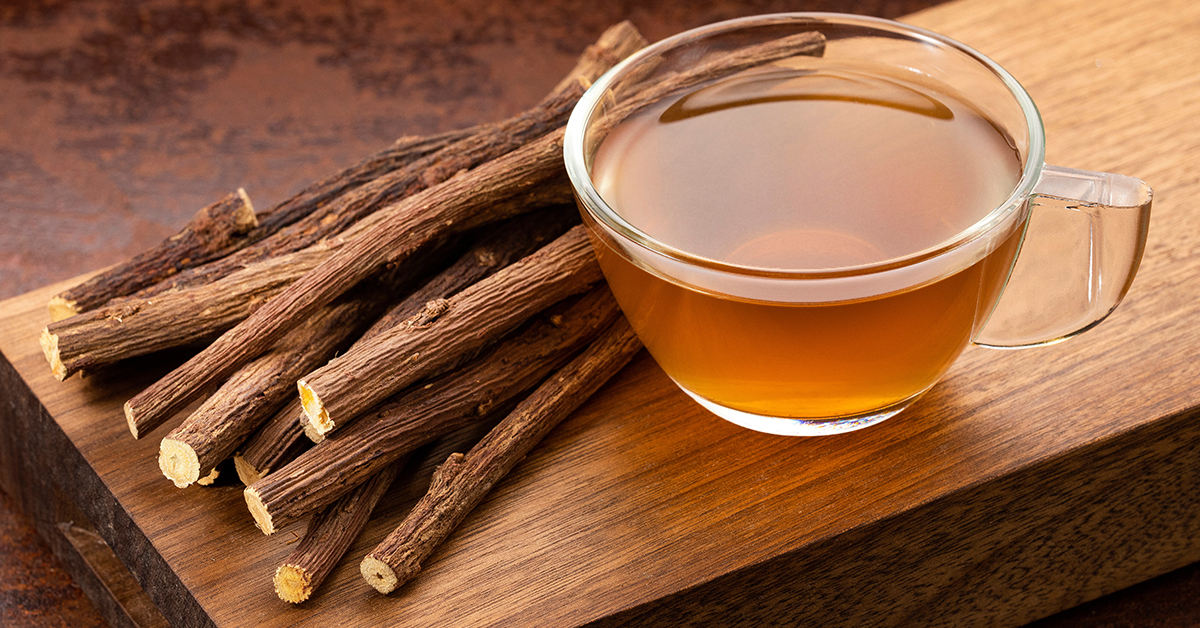
Licorice-Ginger Infusion
Ingredients:
- 1 teaspoon dried licorice root
- 1 teaspoon dried ginger root
- 1 cup of boiling water
Preparation:
- Mix the herbs in a teapot.
- Pour boiling water over the herbs and steep for 10 minutes.
- Strain and drink 1-2 cups daily to help reduce inflammation and ease cough symptoms.
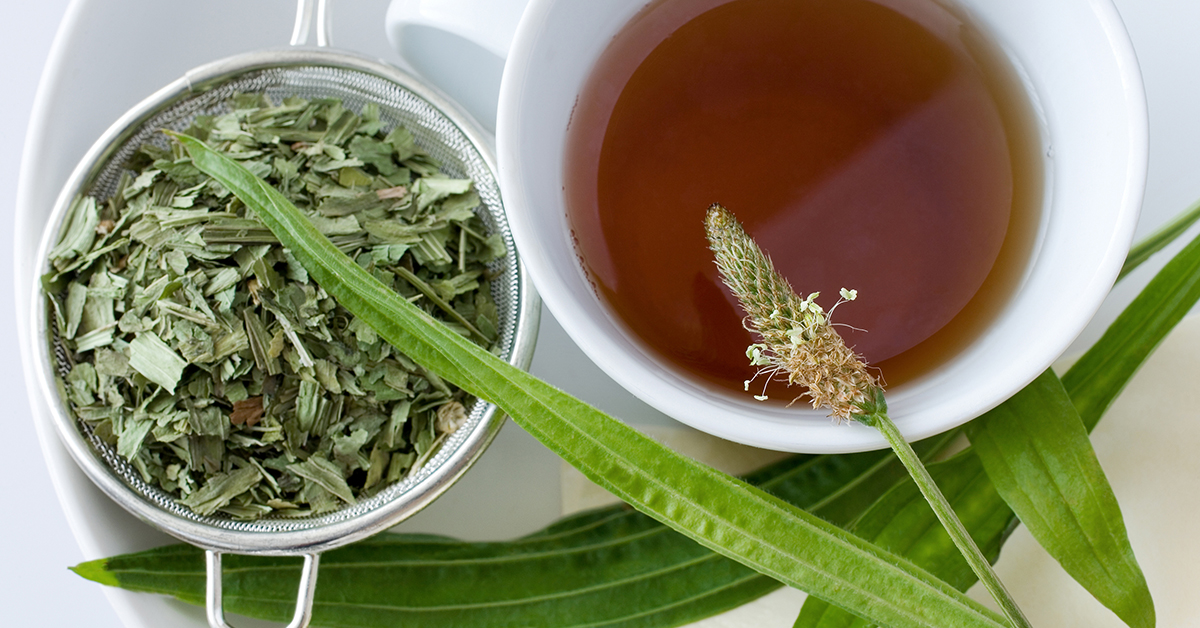
Respiratory Support Blend
Ingredients:
- 1 teaspoon dried marshmallow root
- 1 teaspoon dried plantain leaf
- ½ teaspoon dried thyme
- 1 cup of boiling water
Preparation:
- Combine all herbs in a teapot.
- Add boiling water and steep for 15 minutes.
- Strain and drink 2-3 cups daily to support respiratory health and soothe a dry cough.
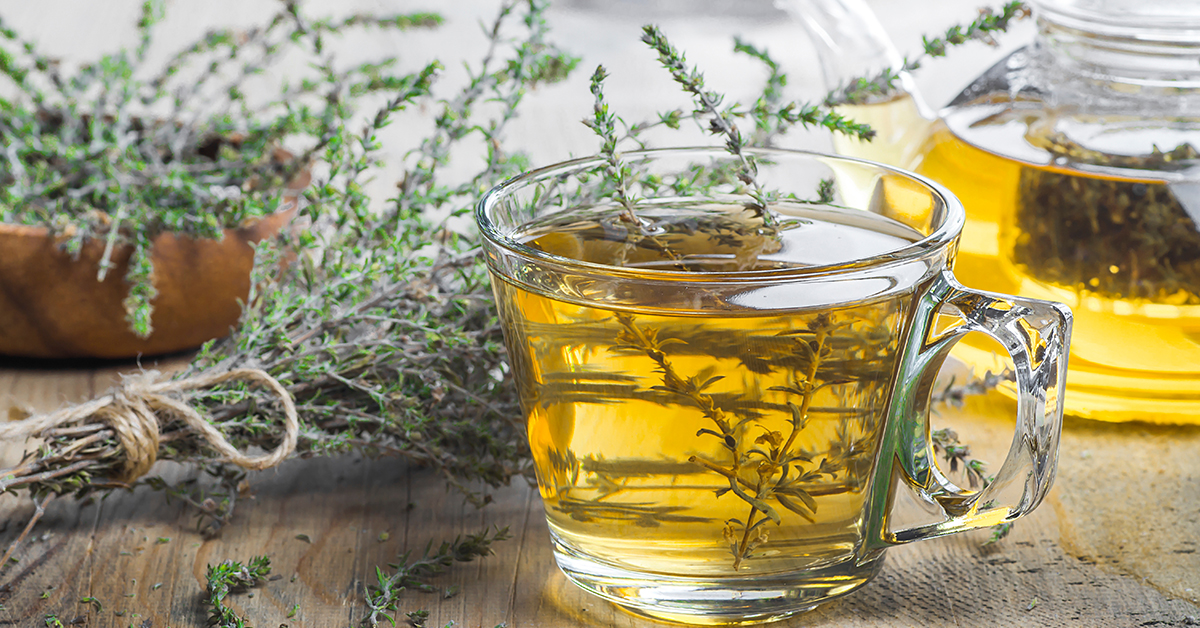
Mucus-Clearing Tea
Ingredients:
- ½ teaspoon dried licorice root
- ½ teaspoon dried ginger root
- ½ teaspoon dried thyme
- ½ teaspoon dried slippery elm bark
- 1 cup of boiling water
Preparation:
- Mix all herbs in a teapot.
- Add boiling water and steep for 10-15 minutes.
- Strain and drink 1-2 cups daily to help clear mucus and potentially reduce cough frequency.
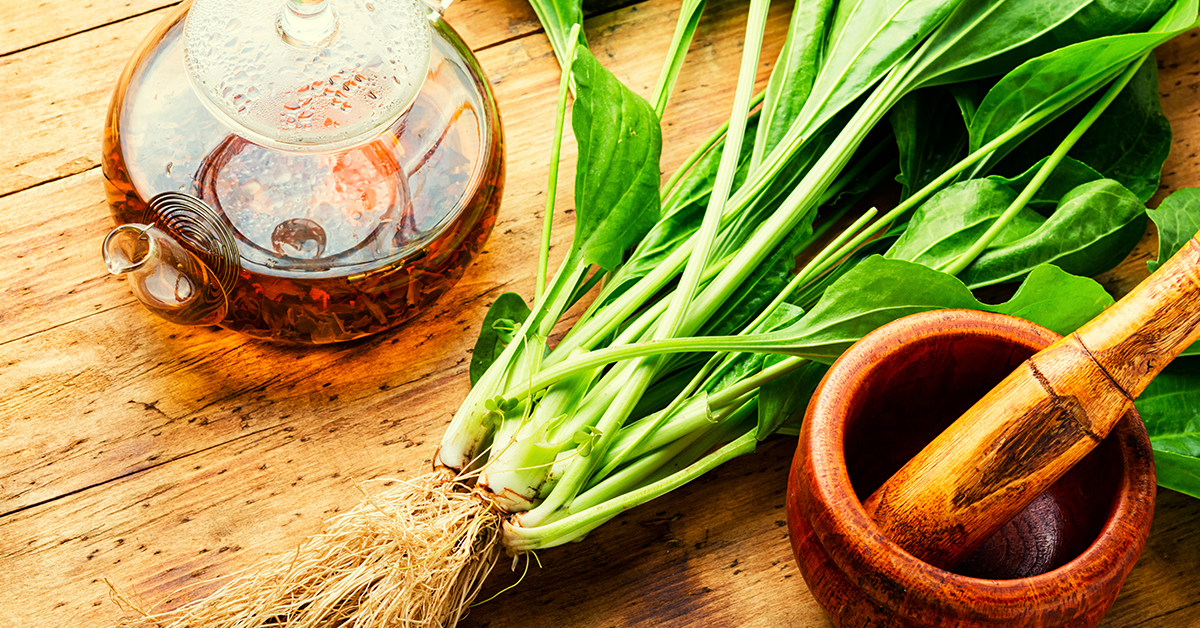
Potent Dry Cough Relief Decoction
Ingredients:
- 1 teaspoon dried marshmallow root
- 1 teaspoon dried plantain leaf
- ½ teaspoon dried ginger root
- ½ teaspoon dried thyme
- ½ teaspoon dried licorice root
- 1½ cups of water
Preparation:
- Combine all herbs in a small saucepan with water.
- Bring to a boil, reduce heat, and simmer for 15-20 minutes.
- Strain and drink ½ cup 2-3 times daily for thorough dry cough relief.
These herbal blends are designed to address various aspects of dry cough, from soothing irritated throats to supporting overall respiratory health. Always consult a healthcare provider before starting any new herbal regimen, especially if you have existing health conditions or are taking medications.
☯️ Integrating Herbs into Daily Life for Dry Cough Relief
Incorporating herbs into your daily routine can effectively relieve dry cough and support overall respiratory health. Here are some practical tips for using herbs and complementary practices to maximize their benefits.
Daily Use and Lifestyle Integration
- 🫖 Herbal Teas: Start your day with a cup of Soothing Throat Tea or Licorice-Ginger Infusion. These may help set a positive tone for your respiratory system and provide relief throughout the day. Consider preparing a larger batch in the morning to carry in a thermos for sipping throughout the day.
- 💚 Herbal Supplements: If you prefer not to drink herbal teas, consider taking herbs like licorice or marshmallow in capsule or tincture form. These can be easily incorporated into your daily supplement regimen. Be cautious with licorice, as long-term use or high doses may lead to side effects such as increased blood pressure.
- 🍵 Herbal Steam Inhalation: Try an herbal steam inhalation using thyme, chamomile, or ginger before bed. This can help clear your airways and provide relief for nighttime coughing. Ensure the water is not too hot to avoid burns and consider adding essential oils cautiously as they can be potent.
Additional Practices to Support Respiratory Health
- 🫗 Hydration: Staying well-hydrated is crucial for managing dry cough. In addition to water, herbal teas can contribute to your daily fluid intake while providing therapeutic benefits.
- 💨 Humidifier Use: Running a humidifier in your bedroom at night can help keep your airways moist, reducing irritation that leads to coughing. Ensure proper cleaning of the humidifier to prevent mold or bacteria growth.
- 🫚 Dietary Adjustments: Incorporate anti-inflammatory foods like ginger and turmeric into your meals. These can complement the effects of your herbal treatments.
- 🍯 Honey: A spoonful of honey, especially before bed, may help soothe your throat and reduce nighttime coughing. However, honey should not be given to children under one-year-old due to the risk of botulism.
- 🧘♀️ Stress Management: Practices like deep breathing exercises or meditation may help reduce stress, which can exacerbate cough symptoms.
- 🏃♀️ Gentle Exercise: Light activities like walking or yoga can help improve overall respiratory function and circulation.
Integrating these herbs and practices into your daily life may provide comprehensive support for managing dry cough. Always start with smaller doses to observe how your body reacts, and consult with a healthcare provider to ensure these herbal remedies are appropriate for you, especially if you have underlying health conditions or are taking medications.
🌱 Navigating Herbs Safely
Starting with small doses is the first step when adding herbal remedies to your health routine. This approach lets you see how you respond and adjust amounts for the best effect, keeping safety in mind. While many herbs are safe, everyone’s body reacts differently. If you notice any side effects, it’s important to stop and think about what might be causing them.
Remember, herbs can sometimes interact with prescription medicines. These interactions might make your medicines work too well or not well enough, which is why talking to a healthcare provider or an herbalist is essential. This is especially crucial if you’re pregnant, breastfeeding, taking medications regularly, or have an existing health condition. Getting advice tailored to your situation can help you avoid any unnecessary risks.
For kids and older adults, being extra careful with herbs is important. Their bodies might react more strongly to herbal remedies, and the chance of side effects or interactions could be greater. Before giving herbal treatments to children or elderly family members, getting advice from a professional is a must to ensure their safety.
By being cautious and seeking expert advice when needed, you can make herbal remedies a safe part of your wellness plan. This careful approach allows you to enjoy the benefits of herbs while keeping yourself and your family safe.
We hope you learned some new things about remedies for dry cough relief, focusing on several effective herbs with soothing and expectorant properties. Licorice root, marshmallow root, plantain, ginger, thyme, and slippery elm are highlighted for their potential benefits in managing dry cough symptoms.
These herbs work in various ways to address dry cough. They may help coat and protect irritated throat tissues, reduce inflammation, loosen mucus, and suppress the cough reflex. Some, like licorice and ginger, also have antiviral properties that could help fight respiratory infections.
Integrating these herbal remedies into daily life and complementary practices like staying hydrated and using a humidifier can offer natural support for managing dry cough. However, it’s important to use these remedies appropriately and consult a healthcare provider if symptoms persist or worsen.
FAQ
What are the most effective herbs for treating dry cough?
Some of the most effective herbs for treating dry cough include licorice (Glycyrrhiza glabra), marshmallow (Althaea officinalis), and plantain (Plantago spp.). Licorice root contains glycyrrhizin, which has anti-inflammatory and potential antiviral properties. These properties may help soothe irritated throat tissues and potentially reduce cough frequency. However, long-term use of licorice should be approached with caution due to potential side effects like increased blood pressure. Marshmallow root is rich in mucilage, which coats and protects the throat, relieving irritation and potentially reducing the urge to cough. Plantain leaves contain compounds with mild expectorant and anti-inflammatory properties, which may help loosen mucus and reduce inflammation in the respiratory tract. These herbs work as demulcents, creating a protective layer over irritated mucous membranes and helping to alleviate dry cough symptoms. Other potentially helpful herbs include ginger (Zingiber officinale) and thyme (Thymus vulgaris), which have mild expectorant and antimicrobial properties that may support overall respiratory health.
How can I prepare and use these herbs for dry cough relief?
There are several ways to prepare and use herbs for dry cough relief. One of the most common methods is to make an herbal tea or infusion. To do this, steep 1-2 teaspoons of dried herbs in a cup of hot water for 10-15 minutes, strain, and drink 2-3 times daily. You can combine different herbs like marshmallow root, licorice root, and plantain leaf for a more potent blend. However, be cautious with licorice root if you have high blood pressure or use it long-term. Another option is to make an herbal syrup by simmering herbs in water to create a concentrated decoction, then adding honey for sweetness and additional soothing properties. Herbal tinctures, which are alcohol-based extracts, can also be effective and are often more concentrated than teas, requiring smaller doses. For external use, you can create a steam inhalation by adding herbs like thyme to a bowl of hot water and inhaling the steam. Be careful with the temperature to avoid burns, and consider using essential oils cautiously. Always start with small amounts to see how your body reacts, and consult with a healthcare provider before starting any new herbal regimen, especially if you have existing health conditions or are taking medications.
Are there any potential side effects or precautions to consider when using herbs for dry cough?
While herbs can be effective for treating dry cough, it's important to be aware of potential side effects and take necessary precautions. Licorice, for example, may cause increased blood pressure and low potassium levels when used in large amounts or for extended periods. People with heart conditions, kidney problems, or high blood pressure should use licorice with caution. Marshmallow root is generally safe but may interact with certain medications by affecting their absorption, particularly when taken simultaneously. Plantain is typically well-tolerated but could cause allergic reactions in some individuals. Ginger can cause heartburn, gastrointestinal discomfort, or increased bleeding risk in some people, particularly when taken in large amounts. Thyme is generally safe when used in culinary amounts, but medicinal doses should be used under professional guidance. It's always best to start with small amounts of any new herb and observe how your body reacts. Pregnant or breastfeeding women, people with existing health conditions, and those taking medications should consult with a healthcare provider before using herbal remedies. Additionally, if your cough persists for over a few weeks or is accompanied by other severe symptoms, it's important to seek medical attention as it may indicate a more serious underlying condition.

